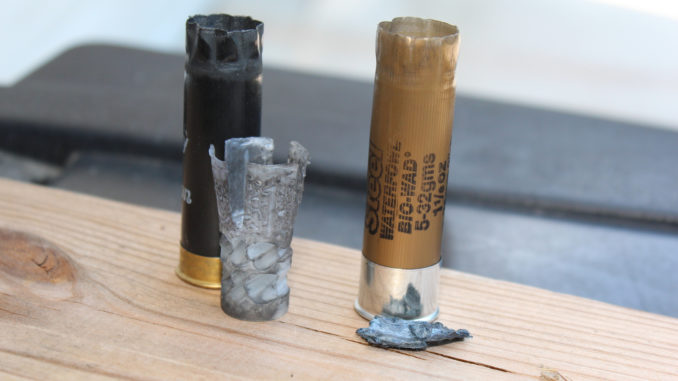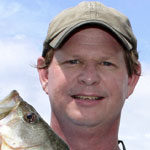
KentGamebore Cartridge Corp. produces Silver Steel Bio-Wad biodegradable shotgun shells.
Most shotgun shells feature a plastic-cup body and a plastic wad, components which are not biodegradable and contribute to littering our lands and waterways.
This issue is of great concern to many sportsmen, including Tyger-Enoree River Alliance President Jon Durham.
On three federal waterfowl management areas within the Tyger-Enoree watershed, Durham and other volunteers picked up over a thousand spent shotgun shells left behind during the 10 half-day hunts allowed in 2010.
The South Carolina Department of Natural Resources estimates hunters fired 3,000 to 5,000 more shells in this area, which adds up to a lot of non-biodegradable trash in just those three areas alone.
Shotgun shells weren’t always made with plastic cups and wads. At one time, most were made of naturally-occurring organic materials. Durham hasn’t been able to get a reasonable answer for why manufacturers made the switch to plastic components, because environmentally friendly products are competitive in cost and performance.
“I can simply see no reason for plastic shotgun shells to be sold and used in our waterways,” said Durham, who in keeping with TERA’s mission decided to see what he could do to minimize further shotgun-shell littering on the three public waterfowl areas.
He found his answer in West Virginia’s KentGamebore Cartridge Corp.
Gamebore is “going green” with its Silver Steel Bio-Wad shells, which feature water-soluble components that begin to break down immediately after the shell is fired.
Knowing he had an alternative to plastic components, Durham and TERA introduced its Shotshell Mitigation Program.
Instead of simply encouraging waterfowlers to use the biodegradable shells, TERA is taking a more active role: The Shotshell Mitigation Program is designed to help manufacturers put the environmentally friendly shells into hunters’ hands.
Sportsmen can buy shells directly from TERA and, with each box of shells, TERA provides a gift (gloves, hat, etc.) and a postage-paid evaluation card with a few short questions.
TERA shares the information with ammunition manufacturers to show hunters’ opinions on the products. Durham hopes TERA can use the information to encourage manufacturers to make more biodegradable shells available to the public.
Kent-Gamebore has agreed to supply TERA with 100 boxes of their bio-wad shells. They are offered in 2 3/4-inch 12-gauge shells in Nos. 5, 6 and 7 shot, and 3-inch shells in Nos. 4, 5 and 6 shot.
Mike Johnson, manager of the Clinton House Plantation where Durham did some shotshell testing, said the difference between bio-wad shells and shells with plastic components is obvious.
“The first thing you notice is the wad,” he said. “It’s immediately recognizable compared to plastic wads because the bio-wads are already breaking down as soon as the shells are fired.”
To purchase bio-wad shells, email Durham or call him at 252.292.1704.




Be the first to comment